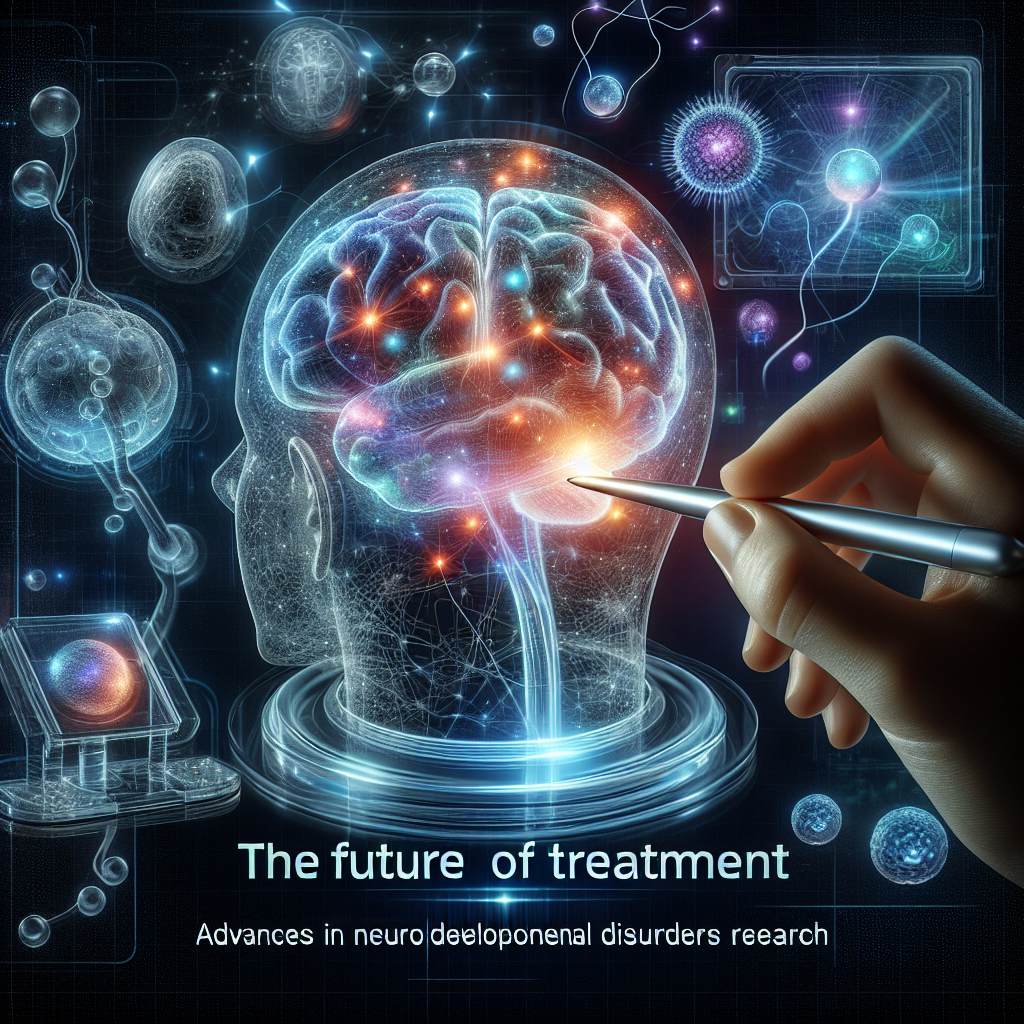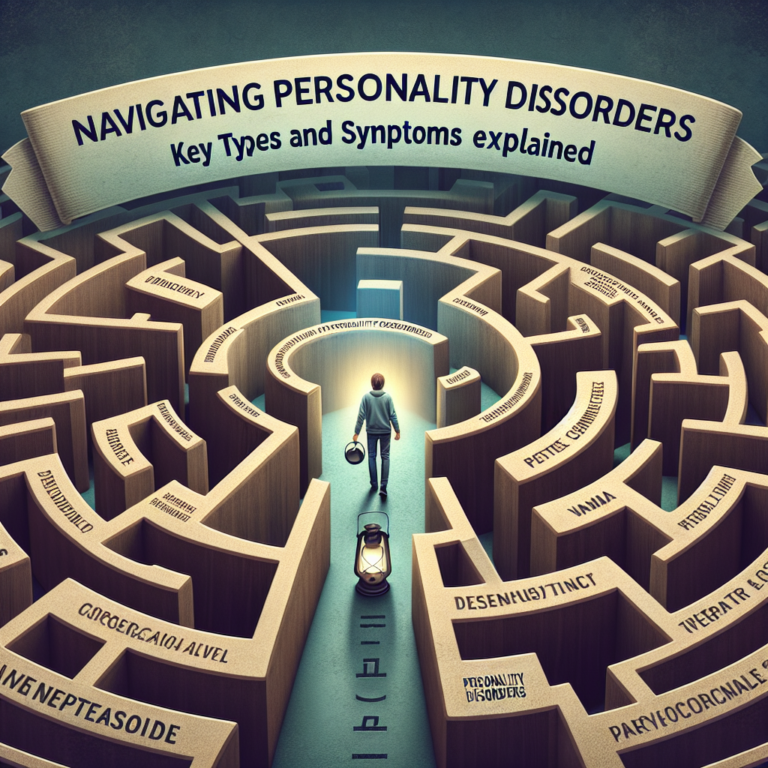
The Future of Treatment: Advances in Neurodevelopmental Disorders Research
Introduction
In the rapidly evolving landscape of healthcare, the future of treatment for neurodevelopmental disorders holds immense promise. With rising global awareness and understanding, these disorders—which include autism spectrum disorder (ASD), attention-deficit/hyperactivity disorder (ADHD), and intellectual disabilities—are receiving unprecedented research focus. This article delves into The Future of Treatment: Advances in Neurodevelopmental Disorders Research, showcasing innovations that are reshaping the therapeutic landscape, enhancing patient outcomes, and improving quality of life for millions.
Understanding Neurodevelopmental Disorders
Neurodevelopmental disorders arise from atypical brain development, impacting various cognitive, social, and emotional processes. Conditions such as ASD, ADHD, and learning disabilities highlight the diverse spectrum of these disorders, affecting individuals uniquely. Understanding the biological, genetic, and environmental factors involved is integral to developing effective treatments.
The Rise of Early Diagnosis and Intervention
Recent studies underscore the importance of early diagnosis and interventions in positively influencing outcomes for children with neurodevelopmental disorders. The shift toward earlier assessments, often through screening tools or parental reports, has enabled timely access to therapies that can dramatically alter developmental trajectories.
Breakthrough Treatments
Precision Medicine Approaches
Precision medicine is revolutionizing how we approach the treatment of neurodevelopmental disorders. By leveraging genetic, environmental, and lifestyle factors, healthcare providers can tailor interventions more effectively than ever before.
Case Study: Genetic Testing in ASD
A recent initiative examined individuals with ASD to identify specific genetic markers associated with various subtypes of the disorder. By using targeted therapies based on these genetic profiles, researchers have reported a substantial improvement in social and adaptive skills among participants. This demonstrates a significant leap toward individualized treatment strategies—a critical aspect of The Future of Treatment: Advances in Neurodevelopmental Disorders Research.
Neurofeedback and Cognitive Training
Neurofeedback therapies, particularly those focusing on brainwave regulation, are gaining traction as non-invasive treatments. Initial studies suggest these therapies enhance cognitive functions and emotional regulation in individuals with ADHD.
Case Study: Neurofeedback in ADHD Management
One study involving children with ADHD utilized neurofeedback. Participants underwent training to modify their brain activity through real-time feedback. The results indicated significant reductions in impulsivity and hyperactivity, suggesting a promising avenue for future treatments grounded in neuroscience.
Pharmacological Advances
Pharmaceutical research is continually evolving, providing new hope for individuals with neurodevelopmental disorders. Recently developed medications aim to address core symptoms while mitigating side effects associated with traditional treatments.
Case Study: Novel ADHD Medication Trials
In a double-blind trial, a new medication designed to target specific neurotransmitter pathways showed a marked reduction in ADHD symptoms with minimal side effects. This aligns with the overall goal of The Future of Treatment: Advances in Neurodevelopmental Disorders Research—to create effective support systems for affected individuals without compromising quality of life.
Incorporating Technology in Treatment
Digital Therapeutics
Digital therapeutics harness software to treat medical conditions, offering evidence-based interventions that can be accessed independently. These tools can complement traditional therapies, making them invaluable in the context of neurodevelopmental disorders.
Case Study: Mobile Apps for ASD
One app, designed for children on the spectrum, enhances social skills through gamification. Parents reported improvements in their children’s interaction abilities, demonstrating the power of technology in delivering therapeutic interventions.
Virtual Reality Therapy
Virtual reality (VR) is emerging as a powerful tool for exposing individuals with neurodevelopmental disorders to various scenarios, thereby aiding in social skills training and anxiety reduction.
Case Study: VR Training for Social Skills
Initial applications of VR for social skills training in children with ASD showed promise, with participants navigating social interactions in a controlled, immersive environment. Feedback from caregivers highlighted significant advancements in children’s real-world interactions, emphasizing the transformative potential of innovative technologies.
The Role of Family and Community Support
Parent Training Programs
Recognizing the significant role families play in the treatment of neurodevelopmental disorders, many programs now focus on training parents in therapeutic approaches. These programs educate parents about the disorders, equipping them with strategies to reinforce therapeutic exercises at home.
Community-Based Interventions
Community resources, support groups, and inclusive programs play a vital role in fostering social inclusion and understanding. By strengthening community ties, families affected by neurodevelopmental disorders can find solace in shared experiences.
Bridging the Gap: Education and Advocacy
Awareness Campaigns
Educational initiatives aimed at raising awareness about neurodevelopmental disorders help dispel myths and promote understanding. Organizations are stepping up their efforts to educate educators, healthcare providers, and the general public.
Policy Advocacy
Advocacy for policy changes is crucial for ensuring that individuals with neurodevelopmental disorders receive necessary services and support. As the dialogue around these disorders continues to grow, there is an increasing emphasis on preventing discrimination and promoting accessibility.
Future Directions in Research
Looking ahead, several key areas are poised for significant advancement in The Future of Treatment: Advances in Neurodevelopmental Disorders Research.
Biomarkers and Their Implications
Research into biomarkers for neurodevelopmental disorders is burgeoning. These biological indicators could lead to more accurate diagnoses and tailored interventions, making them essential to future research efforts.
Integrating Multidisciplinary Approaches
Understanding neurodevelopmental disorders requires the collaboration of various disciplines—neurology, psychology, and education, to name a few. Interdisciplinary research may unlock new treatment paradigms and enhance care.
Longitudinal Studies
Long-term studies will provide deeper insights into the trajectory of these conditions, as well as the effectiveness of interventions over time. This data can inform best practices and lead to more informed treatment decisions.
Conclusion
The future of treatment for neurodevelopmental disorders is unfolding at a breathtaking pace. Through advances in precision medicine, technological integration, and community awareness, we stand on the threshold of a new era in research and treatment. It is imperative for stakeholders—from researchers to families—to collaborate closely, fostering environments that nurture growth, acceptance, and support.
As we continue to explore The Future of Treatment: Advances in Neurodevelopmental Disorders Research, let us remain committed to breaking barriers, reshaping narratives, and most importantly, enhancing the lives of those affected by neurodevelopmental disorders.
FAQs
What are neurodevelopmental disorders?
Neurodevelopmental disorders are a group of conditions that arise during brain development, impacting cognitive functions and behavior. They include ASD, ADHD, and intellectual disabilities.
How can I support someone with a neurodevelopmental disorder?
Understanding, patience, and active participation in therapy can significantly aid in supporting individuals with these conditions. Encouraging social interactions and providing a structured environment is beneficial.
What role does genetics play in these disorders?
Genetic factors can influence the development of neurodevelopmental disorders, with certain genetic markers linked to specific conditions.
Are there effective non-pharmacological treatments available?
Yes, various non-pharmacological treatments, such as cognitive-behavioral therapy and neurofeedback, have shown promise in managing symptoms.
How can I stay updated on advancements in research?
Following reputable organizations, subscribing to relevant journals, and participating in community forums can keep you informed about the latest research and treatment developments.
In conclusion, advancements in the treatment of neurodevelopmental disorders herald new beginnings for families worldwide. By championing research, technology, and inclusivity, we can create a future where everyone thrives, regardless of neurological differences.











